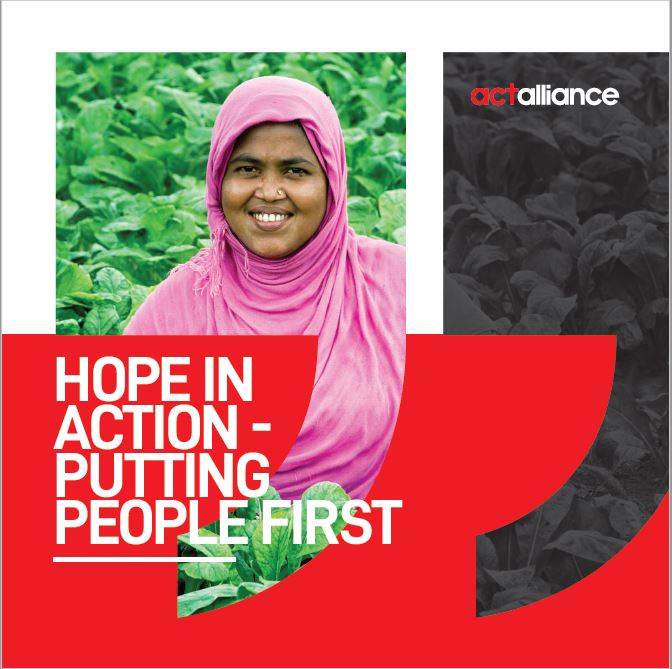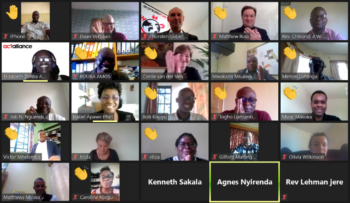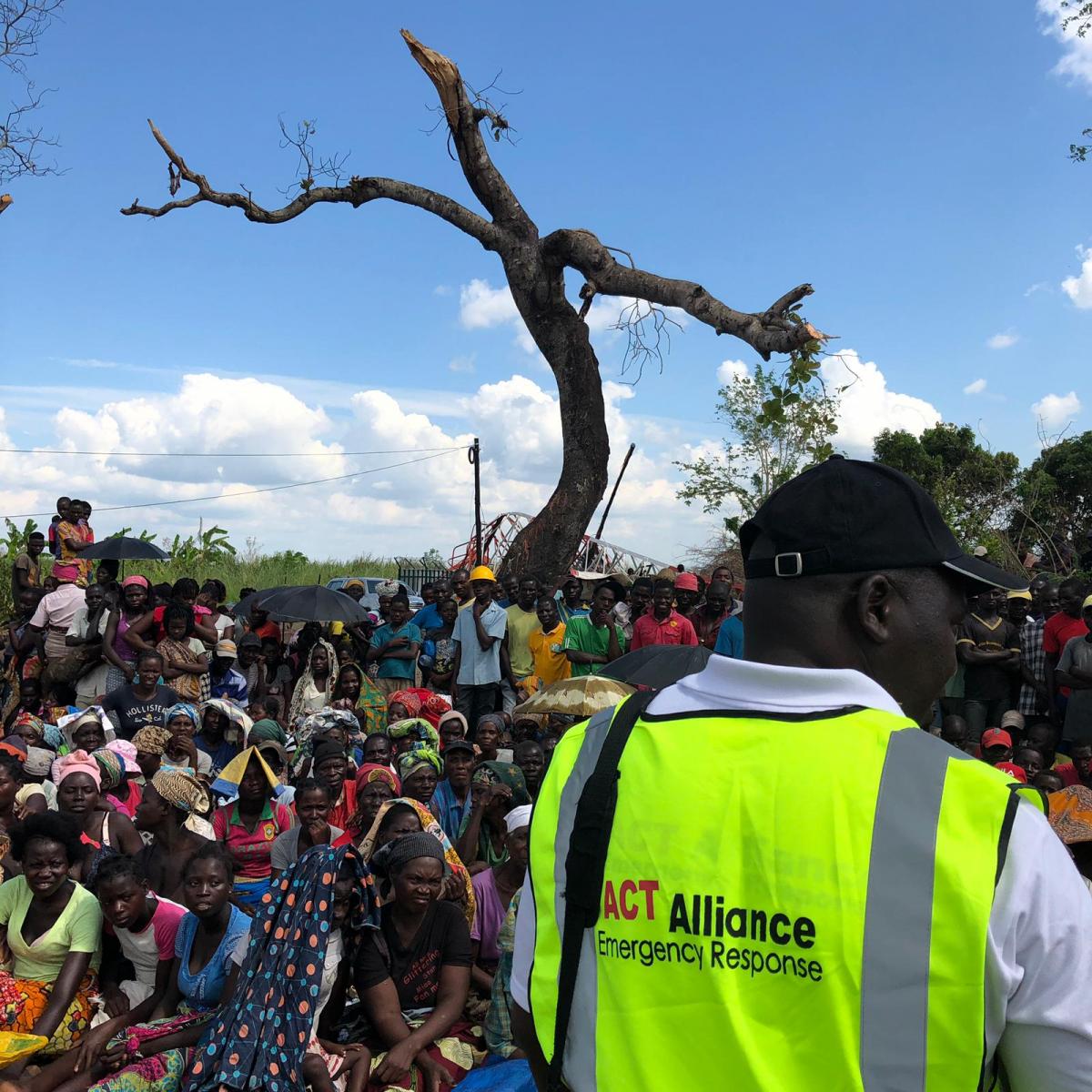This article was reprinted on April 21, 2021, with permission of the World Council of Churches. Read the original article here.
The World Council of Churches (WCC) and the ACT Alliance have announced the pilot of a “learning process” in Malawi and Cameroon that will lead to a model for strong collaboration in many other countries as well.
At a meeting on 15 April, the WCC and ACT Alliance announced the new initiative, which is not a traditional research project that extracts data and issues a report, but is a dynamic study of existing and new collaborative efforts to examine each stage of collaboration, extract best practices and identify obstacles.
The WCC and ACT Alliance have a close collaboration on a global level, yet the two organizations together have realized that the quality of collaboration between churches and ACT Forums differs considerably on national levels.
WCC deputy general secretary Prof. Dr Isabel Phiri said that piloting an active learning process in Malawi and Cameroon is particularly timely given the challenges facing those two nations today.
“The learning process is a fulfilment of one of the resolutions of the International Consultation on the Relationship between Churches and Specialized Ministries in 2014,” explained Phiri. “The resolution stated that developing an environment for constructing a continuous learning community leads to learning from best practices.”
“The COVID-19 pandemic has presented us with real opportunities for ecumenical diaconal best practices for cooperation,” she added.
Rev. Matthew Z. Ross, WCC programme executive for Diakonia and Capacity Building, explained the choice of Malawi and Cameroon as the pilot nations. “We choose two countries where collaboration has been working well, but where people involved in collaboration see opportunities for improvement,” he said.
“These are local realisations of a global intent. In partnership, much can and must be done in these countries – particularly given the tragic impact of COVID-19 — including affecting progress towards achieving the aims of the UN Sustainable Development Goals,” added Ross.

Participants on the Zoom meeting to launch the learning process. Photo: ACT
The learning process is divided into three phases: initiation, implementation and finalisation, leading to the presentation at the WCC 11th Assembly in 2022 of a learning tool that will be replicable and scalable to ACT Forums and churches in other countries.
Elizabeth Kisiigha Zimba, ACT Alliance regional representative for Africa, said: “We have witnessed very good interactions and experience of the great joint work by the ACT Forums and WCC member churches in Malawi and Cameroon, with great interest and passion ready to undertake the learning process.”
Dr. Thorsten Göbel, ACT Alliance director of programs, expressed his appreciation that participants already have been able to put the difficulties on the table. “There is indeed fear of competition, or existence of competition, whereas there is so much potential in the collective approach,” said Göbel. “From the perspective of ACT Alliance, a joint response to the global challenges, including the pandemic, is really important. Joint efforts of churches and specialized ministries are a credible witness of our faith.”

ACT members were the first agencies to bring relief supplies to villages in Nhamatanda District in Mozambique after the Cyclone Idai. ACT Alliance provided life-saving humanitarian relief after Cyclone Idai affected hundreds of thousands in Mozambique, Zimbabwe and Malawi in 2019. Photo: Alwynn Javier/ACT
 International Day for the Elimination of Violence against Women, and runs until 10 December, Human Rights Day. It was started by activists at the inaugural Women’s Global Leadership Institute in 1991 and continues to be coordinated each year by the Center for Women’s Global Leadership.
International Day for the Elimination of Violence against Women, and runs until 10 December, Human Rights Day. It was started by activists at the inaugural Women’s Global Leadership Institute in 1991 and continues to be coordinated each year by the Center for Women’s Global Leadership.

